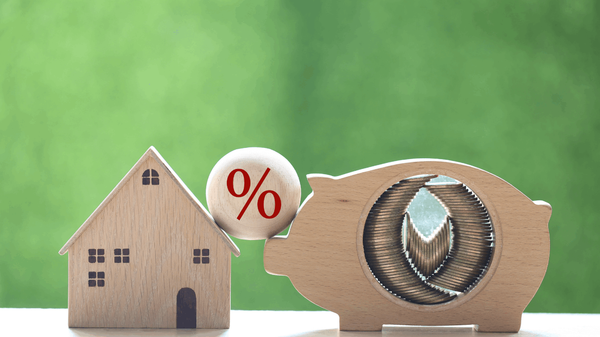The Five-Year Rule: Why It Matters When Buying a Home
Whether you're buying your first home or preparing to sell, you've probably heard this advice: "Only buy if you plan to stay for five years." But what’s behind this popular guideline—and should you follow it? Let’s unpack the Five-Year Rule and why it plays a major role in smart homeownership decisions.
What Is the Five-Year Rule?

The Five-Year Rule is a common principle in real estate that suggests buyers should only purchase a home if they expect to stay in it for at least five years. It’s not a rigid rule, but a useful benchmark to help protect your investment and avoid losing money due to short-term market shifts and transaction costs.
Why This Rule Exists
Market Recovery Time
Real estate markets rise and fall. If you need to sell quickly during a downturn, you could take a loss. Staying in your home for at least five years helps ride out those fluctuations and gives your property time to appreciate.
High Transaction Costs
Buying and selling a home isn’t cheap. From closing costs and agent commissions to moving expenses and taxes, it can take years just to recoup what you spent getting into the home in the first place.
Psychological and Financial Perks of Long-Term Ownership

Emotional Investment
Spending several years in one place allows you to become part of your community, settle into routines, and get the most out of your neighborhood.
Reduced Regret
Moving too soon can bring regrets—especially if you haven’t built enough equity or face unfavorable market conditions. A five-year outlook encourages thoughtful planning.
Understanding Appreciation and Local Trends

National vs. Local Factors
While national home values tend to rise steadily, local markets vary widely. Growth in areas like Austin or Nashville might far outpace rural regions. Five years gives time for local factors to play out in your favor.
Real Examples
A buyer who purchased in 2019 likely saw steady appreciation even through the 2022–2023 slowdown. Meanwhile, someone who bought in 2020 and sold in 2022 may have broken even due to fees, despite rising prices.
When the Rule Doesn’t Apply

Life Happens
Relocation for work, personal emergencies, or unexpected life changes may cut your timeline short—and that’s okay. Just understand the financial implications of selling earlier.
Investor Strategies
If you're buying to flip or rent, the Five-Year Rule doesn't always apply. Investors often work on shorter timelines, but they plan for added risk and expenses.
How to Know If You’re Ready to Stay
-
Do you love the area?
-
Will the home meet your future needs?
-
Are you financially stable for the long haul?
Look at local forecasts, upcoming developments, and lifestyle fit. Five years is a good window to recover costs, build equity, and benefit from appreciation.
Financial Factors Over a Five-Year Period
Mortgage Amortization
In the early years of your mortgage, most payments go toward interest. The longer you stay, the more you pay down principal and build equity.
Compound Growth
Home appreciation and equity build together. Over five years, the combined effect can significantly boost your net worth.
Pros & Cons of the Five-Year Rule
✅ Advantages:
-
Stronger equity position
-
Better chance to profit on resale
-
Increased financial stability
⚠️ Disadvantages:
-
Limits flexibility for career/life changes
-
May not suit buyers with uncertain timelines
-
Depends on market performance
Advice for First-Time Buyers
-
Think long-term: Budget for not just your mortgage but repairs, taxes, and emergencies.
-
Choose wisely: Pick a location and layout that fits both now and in the future.
-
Don’t chase trends: Opt for a home with staying power—not just Instagram appeal.
The Rule and Investment Strategy
Buy-and-Hold Wins
Many investors follow a “buy and hold” strategy, often using a five-year minimum to maximize returns and reduce risk.
Renting as Plan B
If you must move early, consider renting the property out. It can cover costs and buy time for the market to rebound.
Conclusion
The Five-Year Rule isn’t a rigid requirement—it’s a smart way to reduce financial risk and increase the chances of turning your home into a long-term asset. While life can throw curveballs, aiming for at least five years in your home helps ensure your investment pays off. Think of it as a buffer zone for both your wallet and your peace of mind.
FAQs
1. What if I sell before five years?
You may face losses due to closing costs and limited equity gains—especially if home prices haven’t appreciated much.
2. Does this rule apply in fast-growing markets?
Yes, though appreciation may happen faster in hot markets. But volatility can still occur, and five years offers stability.
3. Does the Five-Year Rule apply to condos or townhomes?
Yes. Any property with significant entry and exit costs benefits from longer ownership to offset fees.
4. Can I rent my home instead of selling early?
Absolutely. Renting it out can help you cover costs while waiting for the right time to sell.
5. When is it okay to break the rule?
If life circumstances change—like a job move or family needs—it may make sense to sell sooner. Just be prepared for the financial impact.
Categories
Recent Posts











7997 W. Sahara Ave. Suite 101, Vegas, NV, 89117, United States
